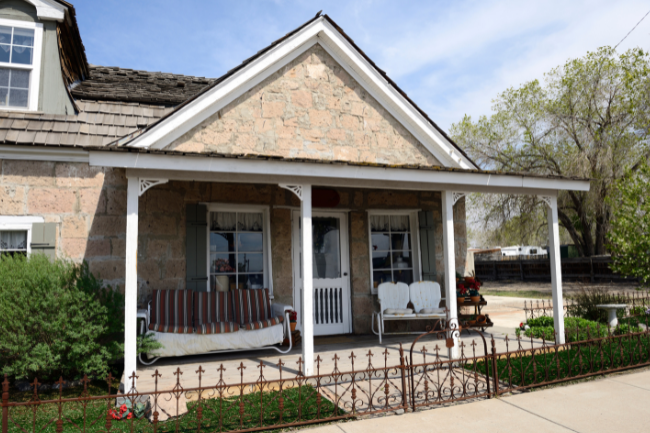“I’m young enough that I could still live in my car if I have to,” she says on the phone, “but many of the other people in this apartment building are pretty old and are doing worse than I am.” We talk for a bit and she tells me some of the things she’s done in her life, jobs she’s had, places she’s lived, and how, if she’s lucky, maybe she can find a cheap piece of land and a travel trailer to rent. “Something I can afford, it doesn’t have to be fancy, but I still want to have neighbors and some stores nearby.”
I get her email address and promise I’ll send her links to the resources I know about for affordable senior housing in the Prescott area so she can get her name on their waitlists. We talk about other options, like Cottonwood or Phoenix. Too hot, she tells me, but if she has to, she will move. She knows it could take a while to get a call for an apartment she can afford, maybe two to five years, which is a long time to wait when you’ve been told your current rent is going up $800 in less than two years, so you’re not going to be able to stay.
It’s expensive to get old. I get calls like this almost every day: people in their 70s, 80s and 90s who need to move somewhere with more care. People who have noticed that their mom or grandfather or neighbor isn’t safe to live alone anymore and call to find out what is possible.
We don’t talk about the money first, instead talking about what they need and figuring out if the services we have would be a good fit, improve their health and safety, offer companionship, give them transportation and meals. We get excited about the possibilities together. And then the spell is broken when they share that they only have $1300/month in social security and a small savings account.
I ask a few more questions: are there family members that might chip in, did they serve in the military, do they have any assets, like a home, they could sell? Sometimes they tell me they have Medicaid and I explain that it doesn’t pay for where you live. There are programs, like Arizona Long Term Care (ALTCS) that will pay for assisted living, which is the next level up from senior living, but you have to qualify both financially and medically.
It’s hard to tell someone there’s nothing you can do to help them beyond emailing them a low-income housing list and phone numbers for local non-profits like Meals On Wheels, People Who Care, or the Coalition for Compassion and Justice to see if they have additional resources. I remember one lady, living alone in her 90s and losing her eyesight, who told me she had managed to survive this long, so she’d just keep doing what she was doing and hope for the best.
It’s easy to wonder what went wrong for someone to end up in their older age with no assets and a social security check that doesn’t pay enough for them to live where they can get the help they need. It can be the obvious stuff – addiction, divorce, mental illness, family issues – that takes away the safety net. But often they did everything “right” by working hard, saving money for retirement, and living within their means but something happened along the way. Maybe their spouse got sick and they cashed in the 401K and sold their home to pay for medical care. Or they spent all their money helping their kids through tough times. Or they dedicated their life to serving others in a job that didn’t pay enough to live comfortably in retirement. Or they never expected to live this long.
Affordable housing is an issue that’s bigger than this column. We need to find more and better ways to care for our fellow citizens who fall through the cracks for so many reasons, no matter what their age. No one should have to move out of their home and into their car here in Prescott. We’re better than that. I just know it.

